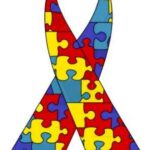 Sleep disturbance is common in autism spectrum disorders (ASD) and melatonin is widely prescribed despite a lack of guidelines.
Sleep disturbance is common in autism spectrum disorders (ASD) and melatonin is widely prescribed despite a lack of guidelines.
Researchers in France reviewed the evidence.
First, the details.
- 12 articles (4 case reports, 3 retrospective studies, 2 open-label clinical trials, and 3 placebo-controlled trials) were included.
And, the results.
- The literature supports a beneficial effect of melatonin on sleep in people with ASD.
- Side effects appear to be few and minor.
The bottom line?
Considering the small number of studies and the limitations due to study design, these findings should not yet be regarded as evidence-based.
The authors concluded, “Randomized controlled trials and long-term follow-up data are still lacking to better assess efficacy and safety of exogenous melatonin for disordered sleep in individuals with ASD.”
Why study melatonin?
For background, melatonin is a hormone produced from serotonin in the brain, which has been implicated in various studies of ASD. Between 40% and 80% of children with autism suffer from sleep disturbances, and compared to age-matched controls they have decreased melatonin levels, as indicated by urine levels of the primary melatonin metabolite, 6-sulfatoxymelatonin (6-SM).
In a recent study, probably not included in the review summarized above, researchers in England reported that among 22 children with ASD, “Melatonin significantly improved sleep latency [time it takes to fall asleep] (by an average of 47 minutes) and total sleep (by an average of 52 minutes) compared to placebo, but not number of night awakenings.
4/3/11 15:25 JR